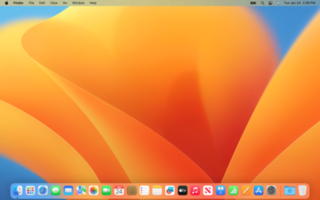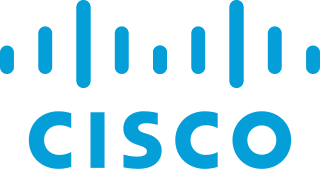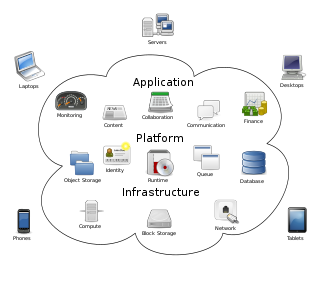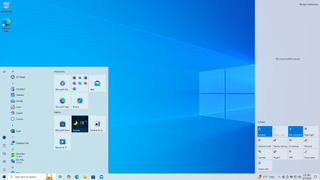
Computer security, cybersecurity, or information technology security is the protection of computer systems and networks from information disclosure, theft of, or damage to their hardware, software, or electronic data, as well as from the disruption or misdirection of the services they provide.

The International Standard Book Number (ISBN) is a numeric commercial book identifier that is intended to be unique. Publishers purchase ISBNs from an affiliate of the International ISBN Agency.

Java is a high-level, class-based, object-oriented programming language that is designed to have as few implementation dependencies as possible. It is a general-purpose programming language intended to let programmers write once, run anywhere (WORA), meaning that compiled Java code can run on all platforms that support Java without the need to recompile. Java applications are typically compiled to bytecode that can run on any Java virtual machine (JVM) regardless of the underlying computer architecture. The syntax of Java is similar to C and C++, but has fewer low-level facilities than either of them. The Java runtime provides dynamic capabilities that are typically not available in traditional compiled languages. As of 2019, Java was one of the most popular programming languages in use according to GitHub, particularly for client–server web applications, with a reported 9 million developers.
Windows is a group of several proprietary graphical operating system families developed and marketed by Microsoft. Each family caters to a certain sector of the computing industry, for example, Windows NT for consumers, Windows Server for servers, and Windows IoT for embedded systems. Defunct Windows families include Windows 9x, Windows Mobile, and Windows Phone.

Microsoft Corporation is an American multinational technology corporation producing computer software, consumer electronics, personal computers, and related services headquartered at the Microsoft Redmond campus located in Redmond, Washington, United States. Its best-known software products are the Windows line of operating systems, the Microsoft Office suite, and the Internet Explorer and Edge web browsers. Its flagship hardware products are the Xbox video game consoles and the Microsoft Surface lineup of touchscreen personal computers. Microsoft ranked No. 21 in the 2020 Fortune 500 rankings of the largest United States corporations by total revenue; it was the world's largest software maker by revenue as of 2019. It is one of the Big Five American information technology companies, alongside Alphabet, Amazon, Apple, and Meta.

macOS is a Unix operating system developed and marketed by Apple Inc. since 2001. It is the primary operating system for Apple's Mac computers. Within the market of desktop and laptop computers it is the second most widely used desktop OS, after Microsoft Windows and ahead of ChromeOS.

A wiki is an online hypertext publication collaboratively edited and managed by its own audience, using a web browser. A typical wiki contains multiple pages for the subjects or scope of the project, and could be either open to the public or limited to use within an organization for maintaining its internal knowledge base.

Windows XP is a major release of Microsoft's Windows NT operating system. It was released to manufacturing on August 24, 2001, and later to retail on October 25, 2001. It is a direct upgrade to its predecessors, Windows 2000 for high-end and business users and Windows Me for home users, available for any devices running Windows NT 4.0, Windows 98, Windows 2000 and Windows Me that meet the new Windows XP system requirements.

Cisco Systems, Inc., commonly known as Cisco, is an American-based multinational digital communications technology conglomerate corporation headquartered in San Jose, California. Cisco develops, manufactures, and sells networking hardware, software, telecommunications equipment and other high-technology services and products. Cisco specializes in specific tech markets, such as the Internet of Things (IoT), domain security, videoconferencing, and energy management with leading products including Webex, OpenDNS, Jabber, Duo Security, and Jasper. Cisco is one of the largest technology companies in the world ranking 74 on the Fortune 100 with over $51 billion in revenue and nearly 80,000 employees.

The S-300 is a series of long range surface-to-air missile systems developed and operated by the former Soviet Union, now fielded by the militaries of Russia and Ukraine as well as several other former Eastern Bloc countries. It was produced by NPO Almaz, based on the initial S-300P version. The S-300 system was developed to defend against air raids and cruise missiles for the Soviet Air Defence Forces. Subsequent variations were also developed to be able to intercept ballistic missiles. The S-300 system was first deployed by the Soviet Union in 1979, designed for the air defence of large industrial and administrative facilities, military bases and control of airspace against enemy strike aircraft. During the Russian invasion of Ukraine in 2022, military analysts have stated that Russia has modified a number of systems to perform surface-to-surface strikes.

The FIFA Men's World Ranking is a ranking system for men's national teams in association football, led by Brazil as of 2022. The teams of the men's member nations of FIFA, football's world governing body, are ranked based on their game results with the most successful teams being ranked highest. The rankings were introduced in December 1992, and eight teams have held the top position, of which Brazil have spent the longest ranked first.
Apache Hadoop is a collection of open-source software utilities that facilitates using a network of many computers to solve problems involving massive amounts of data and computation. It provides a software framework for distributed storage and processing of big data using the MapReduce programming model. Hadoop was originally designed for computer clusters built from commodity hardware, which is still the common use. It has since also found use on clusters of higher-end hardware. All the modules in Hadoop are designed with a fundamental assumption that hardware failures are common occurrences and should be automatically handled by the framework.

Linux is an open-source Unix-like operating system based on the Linux kernel, an operating system kernel first released on September 17, 1991, by Linus Torvalds. Linux is typically packaged as a Linux distribution.

Android is a mobile operating system based on a modified version of the Linux kernel and other open-source software, designed primarily for touchscreen mobile devices such as smartphones and tablets. Android is developed by a consortium of developers known as the Open Handset Alliance and commercially sponsored by Google. It was unveiled in November 2007, with the first commercial Android device, the HTC Dream, being launched in September 2008.

Cloud computing is the on-demand availability of computer system resources, especially data storage and computing power, without direct active management by the user. Large clouds often have functions distributed over multiple locations, each of which is a data center. Cloud computing relies on sharing of resources to achieve coherence and typically uses a "pay as you go" model, which can help in reducing capital expenses but may also lead to unexpected operating expenses for users.

A Unix-like operating system is one that behaves in a manner similar to a Unix system, although not necessarily conforming to or being certified to any version of the Single UNIX Specification. A Unix-like application is one that behaves like the corresponding Unix command or shell. There is no technical standard defining the term, and opinions can differ about the degree to which a particular operating system or application is Unix-like.

Unix is a family of multitasking, multiuser computer operating systems that derive from the original AT&T Unix, whose development started in 1969 at the Bell Labs research center by Ken Thompson, Dennis Ritchie, and others.

BRICS is an acronym for five leading emerging economies: Brazil, Russia, India, China, and South Africa. The first four were initially grouped as "BRIC" in 2001 by Goldman Sachs economist Jim O'Neill, who coined the term to describe fast-growing economies that would collectively dominate the global economy by 2050; South Africa was added in 2010.

Orion is a partially reusable crewed spacecraft used in NASA's Artemis program. The spacecraft consists of a Crew Module (CM) space capsule designed by Lockheed Martin and the European Service Module (ESM) manufactured by Airbus Defence and Space. Capable of supporting a crew of six beyond low Earth orbit, Orion can last up to 21 days undocked and up to six months docked. It is equipped with solar panels, an automated docking system, and glass cockpit interfaces modeled after those used in the Boeing 787 Dreamliner. A single AJ10 engine provides the spacecraft's primary propulsion, while eight R-4D-11 engines, and six pods of custom reaction control system engines developed by Airbus, provide the spacecraft's secondary propulsion. Although compatible with other launch vehicles, Orion is primarily intended to launch atop a Space Launch System (SLS) rocket, with a tower launch escape system.

Windows 10 is a major release of Microsoft's Windows NT operating system. It is the direct successor to Windows 8.1, which was released nearly two years earlier. It was released to manufacturing on July 15, 2015, and later to retail on July 29, 2015. Windows 10 was made available for download via MSDN and TechNet, as a free upgrade for retail copies of Windows 8 and Windows 8.1 users via the Windows Store, and to Windows 7 users via Windows Update. Windows 10 receives new builds on an ongoing basis, which are available at no additional cost to users, in addition to additional test builds of Windows 10, which are available to Windows Insiders. Devices in enterprise environments can receive these updates at a slower pace, or use long-term support milestones that only receive critical updates, such as security patches, over their ten-year lifespan of extended support. In June 2021, Microsoft announced that mainstream support for Windows 10 editions which are not in the Long-Term Servicing Channel (LTSC) ended on October 13, 2020 and extended support will end on October 14, 2025.


















